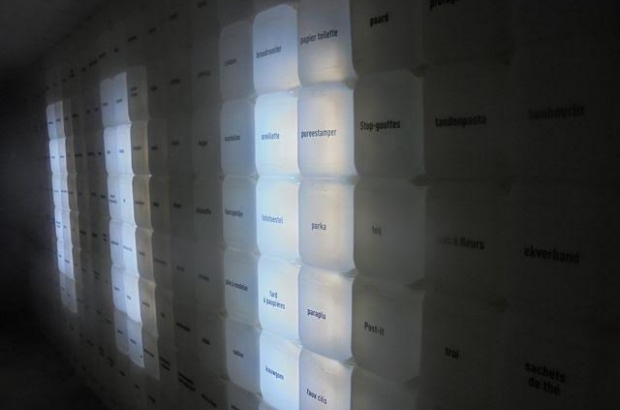- Daily & Weekly newsletters
- Buy & download The Bulletin
- Comment on our articles
'The visitor must make his own opinion': Capitalism museum returns to Brussels
Capitalism: we've all heard about it. It's an economic system that shapes our society profoundly but how much do we really know about it? Two years ago, after visiting the Museum of Communism in Prague, 15 ideologically diverse 20-somethings came to the realisation that there was no Museum of Capitalism in the world.
After many discussions as to what form a serious overview of the subject should take, the itinerant Museum of Capitalism was born. First in Namur, then in Saint-Gilles and Ghent, the museum welcomed more than 9,000 visitors and 300 groups. Its new home is in the new cultural centre (being fashioned out of a former parking structure) of the Cité Modèle in Laeken.
Why a museum? Samuel Hus of the collective explains: "How to talk about this subject which is a core theme of our society but hard to talk about? You may have a definition of capitalism but your neighbour and your friends all have their own definitions.
"The idea of creating a museum was very appealing because a museum is where people go to discuss things. Everybody has had a discussion about capitalism in a bar after two in the morning with some beer that flowed, so our idea was to have this discussion in a sober way, a constructive way."
Teenage student school groups come for guided tours. How do they react? "Sometimes it's difficult to explain economics and society to them as some basic concepts such as supply and demand are not known to them so we have to explain these basic concepts: 'you go to a bakery and there are breads, but why is the baker baking bread?' It's a challenge but it's also very interesting to see what their vision is of society."
Since the museum itself, not just the exhibits, must travel they have come up ingenious ways of creating the spaces. "We found 3,000 plastic jerrycans being thrown away at Tour & Taxis," says Hus. "They not only make easily transportable walls but it's fun to use them since they let light through - it makes a fun atmosphere.
"There are four rooms with interactive displays in the museum. In the first room we talk about the origins of capitalism and we ask the question: what is our ideal society? In the second room we explore the hope of capitalism, the wealth capitalism has created. In the third room we talk about the limits of capitalism, is democracy still democracy, what of the inequalities? In the fourth room we discuss alternatives. Some people say stop eating meat, others say curtail fossil fuel use, there are thousands of alternatives, every day we see new ones pop up.
"This is why we need this museum, to discuss the alternatives and work for a better future. The museum is not ideological. Some of us are socialists, others free-marketers. The visitor must make his own opinion. The museum is open-source. If people want to create the same thing in their neighbourhood we welcome them and give them all our information and knowledge."
The museum has a unique charging structure: "Guided groups are €2 per person. Otherwise you pay relative to how much you liked the museum and what your means are. So if you didn't like it at all but you're very rich you can pay a lot but not as much as you might have, and if you really liked it but are poor you can pay very little or nothing."
Musée du Capitalisme
Cité Culture, Centre Culturel de la Cité Modèle, Allée du Rubis, 1020 Brussels
13 February-30 June, open Wednesdays 1300-18.00, Saturdays 10.00-18.00. Guided tours on reservation
Photo: Richard Harris









